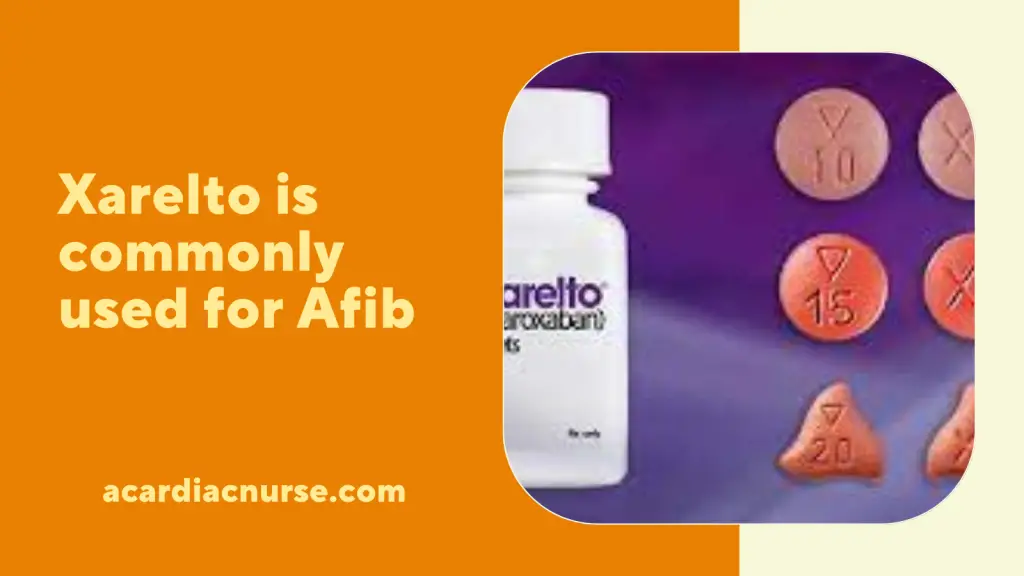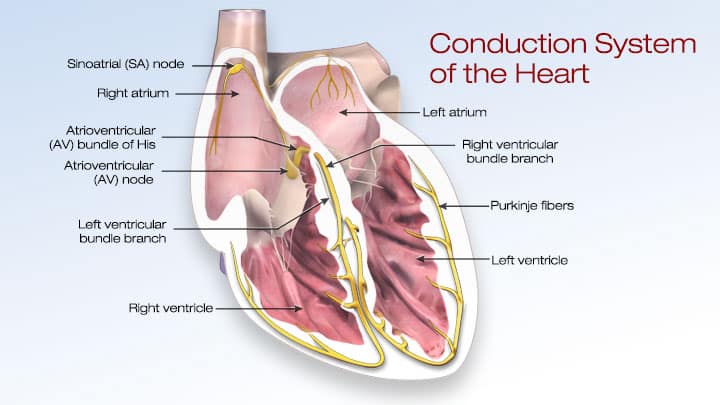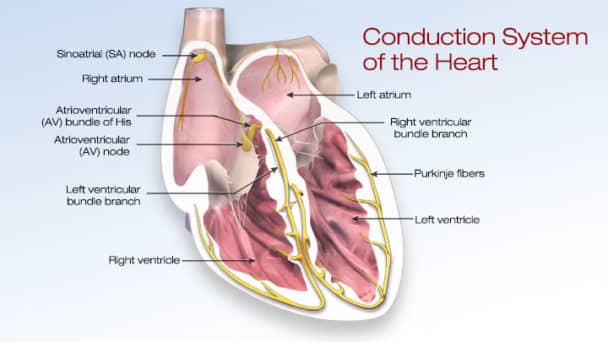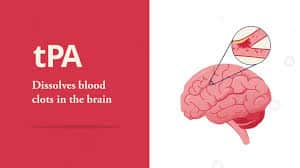Atrial Fib and Cardioembolic Stroke With tPA
As a cardiac nurse, I have seen many people present with mini-strokes or strokes. Many times the patient or their loved one is not aware that they are having a stroke. There is a short window of time that a patient can get to the hospital when they are having a stroke. In this article, I will discuss how tPA is the most effective treatment for ischemic stroke.
How to Give tPA for Stroke
From the time the symptoms start the patient has four hours to get to the hospital, get a CT scan and get diagnosed, and finally get tPA. The stroke time to tPA is 4 hours.
Tissue Plasminogen Activator or tPA is a medication that dissolves clots. Tissue plasminogen activator was approved in 1996 to treat ischemic strokes. Almost 80% of strokes are ischemic.
When tPA is given to the patient, hopefully, it will dissolve the clot and restore blood flow to the brain. There is another type of stroke called a hemorrhagic stroke. This treatment is not indicated in this type of stroke because it might increase the bleeding.
What Percentage of Stroke Patients Get tPA?
Studies conducted in stroke regional settings have found that only approximately 15% to 32% of patients presenting with ischemic stroke arrive within 3 hours of symptom onset. Of these people, 40-50% are eligible for tPA.
Tissue plasminogen activator has a 33% success rate when given within 3-4 hours after symptoms start.
There are risks to tPA therapy such as increased bleeding in the brain or other parts of the body. There are contraindications to people receiving tPA therapy such as people with certain diagnoses or on certain medications,
Atrial Fib and Cardioembolic Stroke With tPA
Often time when patients are diagnosed with atrial fib, the majority of them have prescribed blood thinners. Often times when this is a new diagnosis of atrial fib, the patients are very scared and they are stressed. Atrial fibrillation is usually diagnosed on an ECG.
These patients are often brought to the emergency room via 911 because their family members either noticed they had difficulty speaking or they had a change in mental status.
Many times when these patients are placed on a heart monitor, we find that they are in an atrial fib irregular heart rhythm.
Atrial fib predisposes patients to blood clots. In atrial fibrillation, the atria of the heartbeat irregularly or quivers. When the atria beat irregularly, clots develop in the atria which will go to the ventricles and then up to the artery that leads to the brain.
Twenty percent of people who have ischemic strokes have atrial fib.
Many patients are not aware that they have atrial fib until they are on a monitor. However, there are some signs such as:
- General fatigue
- Rapid and irregular heartbeat
- Fluttering or “thumping” in the chest
- Dizziness
- Shortness of breath and anxiety
- Weakness
- Faintness or confusion
- Fatigue when exercising
- Sweating

Atrial Fib and Cardioembolic Stroke With tPA: Treatment
The treatment of choice given to patients who are not already on a blood thinner is Heparin intravenously until the blood coag levels are therapeutic. Then they are discharged from the hospital on Warfarin, Xarelto, or Eliquis.
When patients develop a clot and they already have a history of atrial fib, often time they have not been compliant with their medications. Patients are non-compliant for so many reasons from intolerable side effects to the drugs being unaffordable.
For example, when patients are prescribed Warfarin, they have to go to the lab 2-3 times a week until they can get their levels correct. Sometimes patients don’t have transportation.
Most patients now are prescribed the newer generation of blood thinners called Xarelto or Eliquis. These blood thinners do not require blood testing. However, they are extremely expensive. They can average from 400-500 dollars a month.
Some insurance companies do not cover these new drugs. However, the drug companies do have patient assistance programs but there are stipulations.
Conclusion
It is important for family members and friends to be supportive when a loved one is diagnosed with atrial fib or if they have had a stroke. What has been your experience with stroke? Leave a comment and let’s discuss it.




